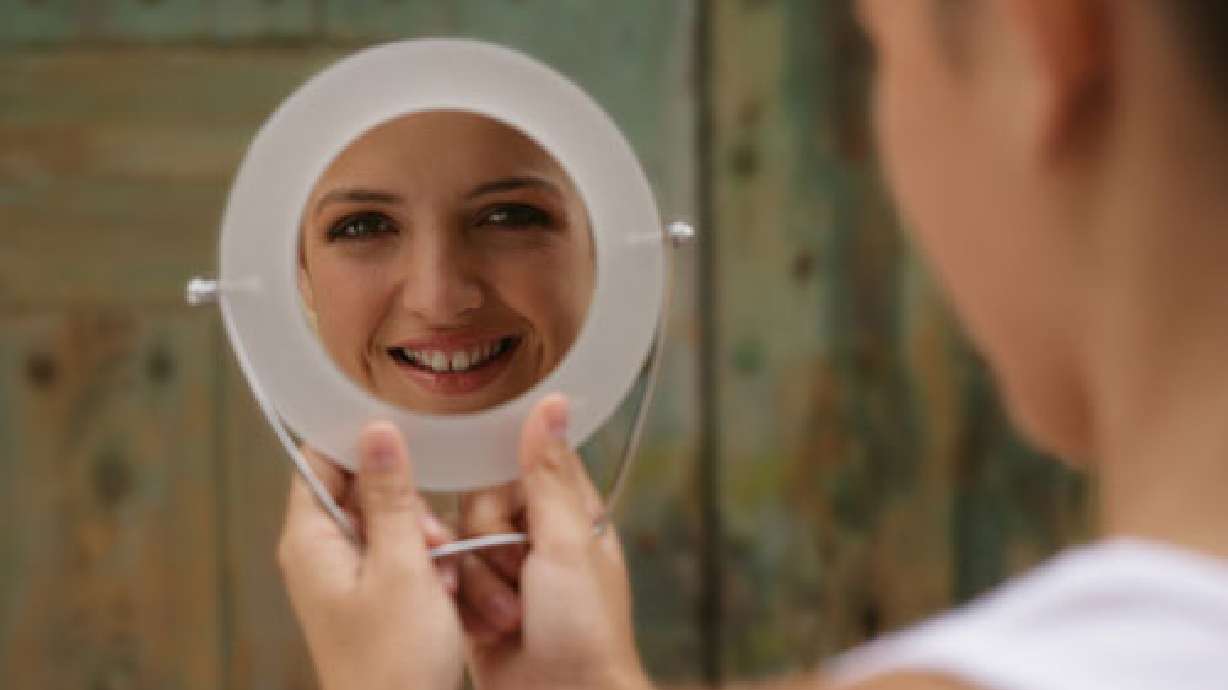Estimated read time: 3-4 minutes
This archived news story is available only for your personal, non-commercial use. Information in the story may be outdated or superseded by additional information. Reading or replaying the story in its archived form does not constitute a republication of the story.
SALT LAKE CITY — Here's more evidence that it's what's on the inside that counts.
Researchers have found that people who are able to hear their own hearts beating are less likely to objectify their bodies, or view themselves as objects only valued for their looks.
"If people are able to stand inside their bodies and feel their body, they have a good sense of what's happening inside themselves, and they're less likely to objectify themselves," Vivien Ainley, a doctoral candidate in neuroscience at Royal Holloway, University of London, and co-author of the study, told LiveJournal.
Related
For the study, Ainley and co-author Manos Tsakiris asked 50 female students ages 19 to 26 to sit and count their heartbeats for brief intervals. Then, the participants were given a questionnaire "to assess what aspect of their body they valued most: its strength, its health or its attractiveness," according to Yahoo! News.
The women who could more accurately count their heartbeats were more likely to answer "health" or "strength," suggesting they viewed their bodies from the inside as opposed to the outside.
The researchers believe that the inability to respond to internal cues may in fact "may be a cause rather than an outcome of high self-objectification," according to the study. "One potential explanation is that people differ in their ability to divide their attention between competing cues."
- Watch what you say. When you spend a lot of time talking about dieting or criticizing your own body, your daughter is listening. You are still your daughter's biggest role model. If you take care of yourself, you'll help your kids appreciate all that our bodies can do.
- Share your feelings. If your kids are struggling with body image, you might share your own insecurities and how you dealt with them. You want your kids to know that you understand. After all, this is just the beginning of a life-long dialogue.
- Make sure girls know they're more than just a pretty face. Placing less emphasis on how girls look helps them value themselves in broader ways later in life. Compliment your daughter on all of her wonderful talents, like her creativity or thoughtfulness.
- Offer other role models. Get your two cents in about who your girls idolize or find pretty in the media and why. Without being heavy handed, talk about different people you find beautiful who are all different body types — and say why.
The findings are especially important because of the greater implications they may have for those with eating disorders and body image issues, the authors say.
"Women who self-objectify are those who are relatively unaware of the interoceptive cues which are related to their emotions," according to the study. "Such women may be vulnerable to clinical conditions associated with poor interoceptive awareness, such as anorexia."
The researchers believe these findings could form a basis for better treatment of people with eating disorders and distorted body images, stating that being able to "manipulate interoceptive awareness could benefit women who are high in self-objectification, as well as individuals with conditions where interoceptive awareness is abnormally low, such as anorexia."
Treatments have already been devised to help women differentiate between internal and external stimuli and to teach them skills to help fend off external stressors, allowing them to better tune into their own bodies and needs.
Researchers at the University of Arizona, for example, found that women who are armed with skills to deal with stress showed a positive body image. According to LiveScience, "to help young women at risk of eating disorders and negative body image, the researchers suggest that prevention programs include ways to make them become comfortable with the multiple and often contradictory expectations placed on them."
"It is particularly important for women to develop a sense of self-worth that is not solely based on appearance, and to build resilience to pressures they may receive from family, friends and the media," the researchers say.










